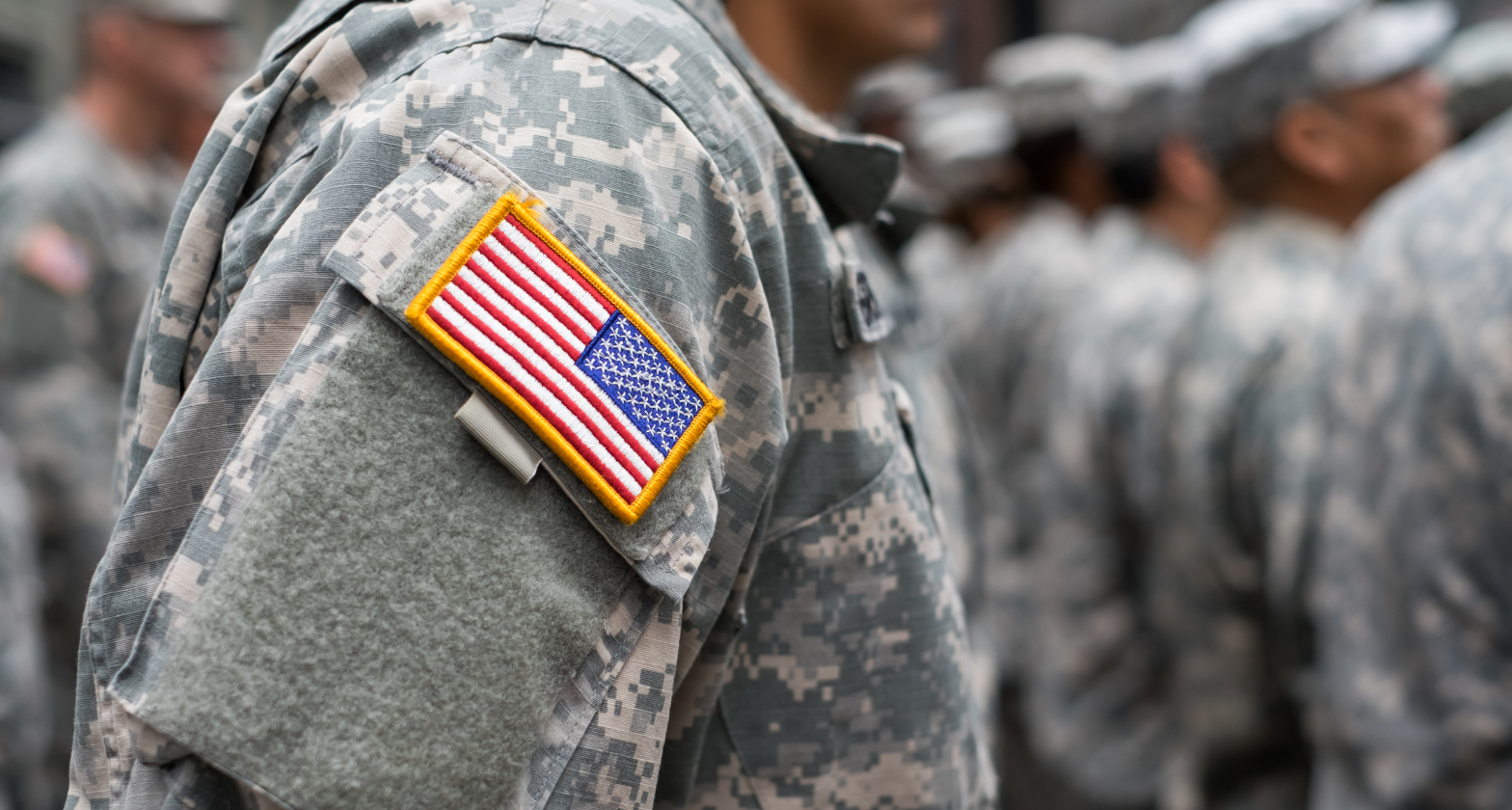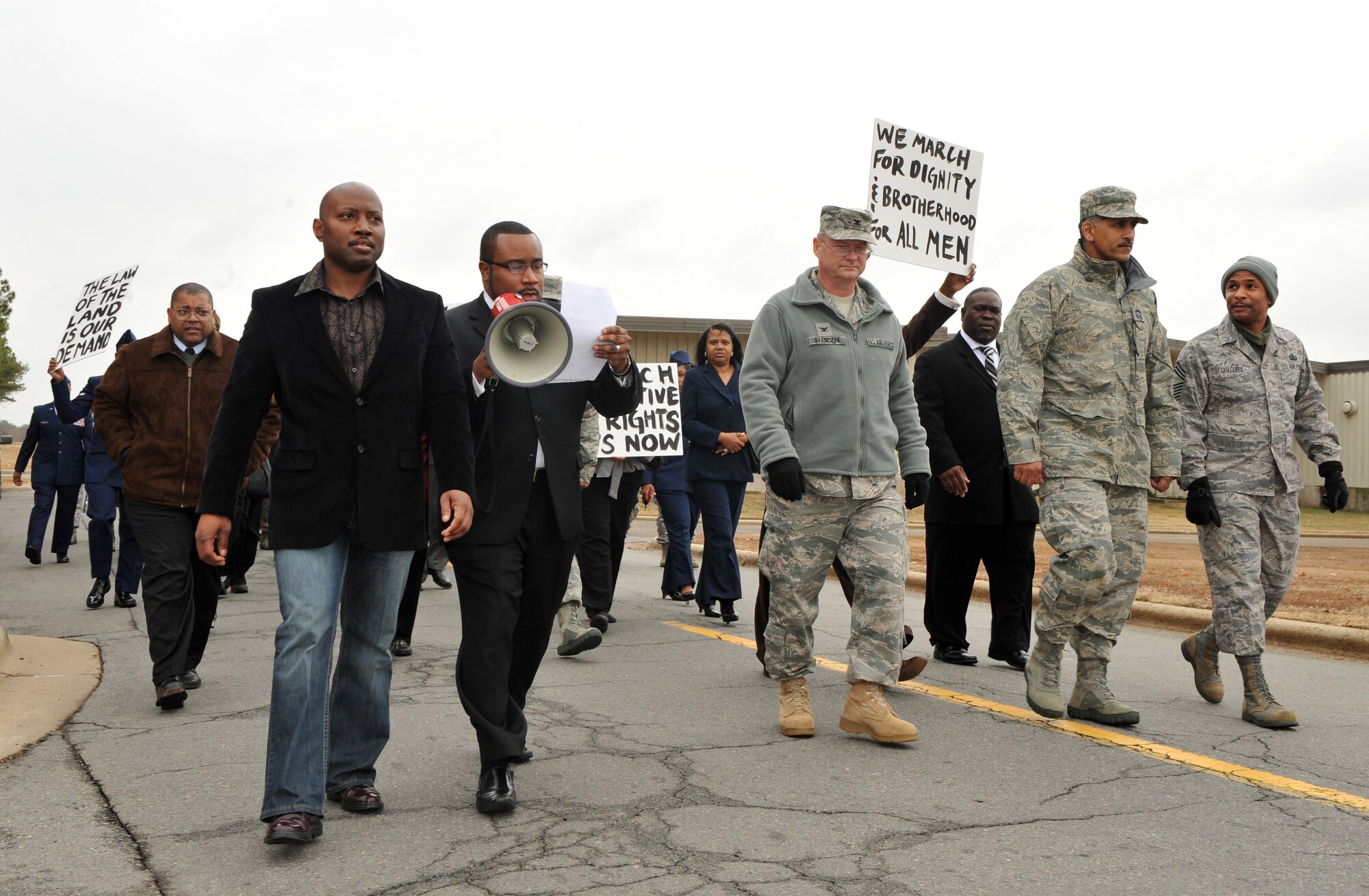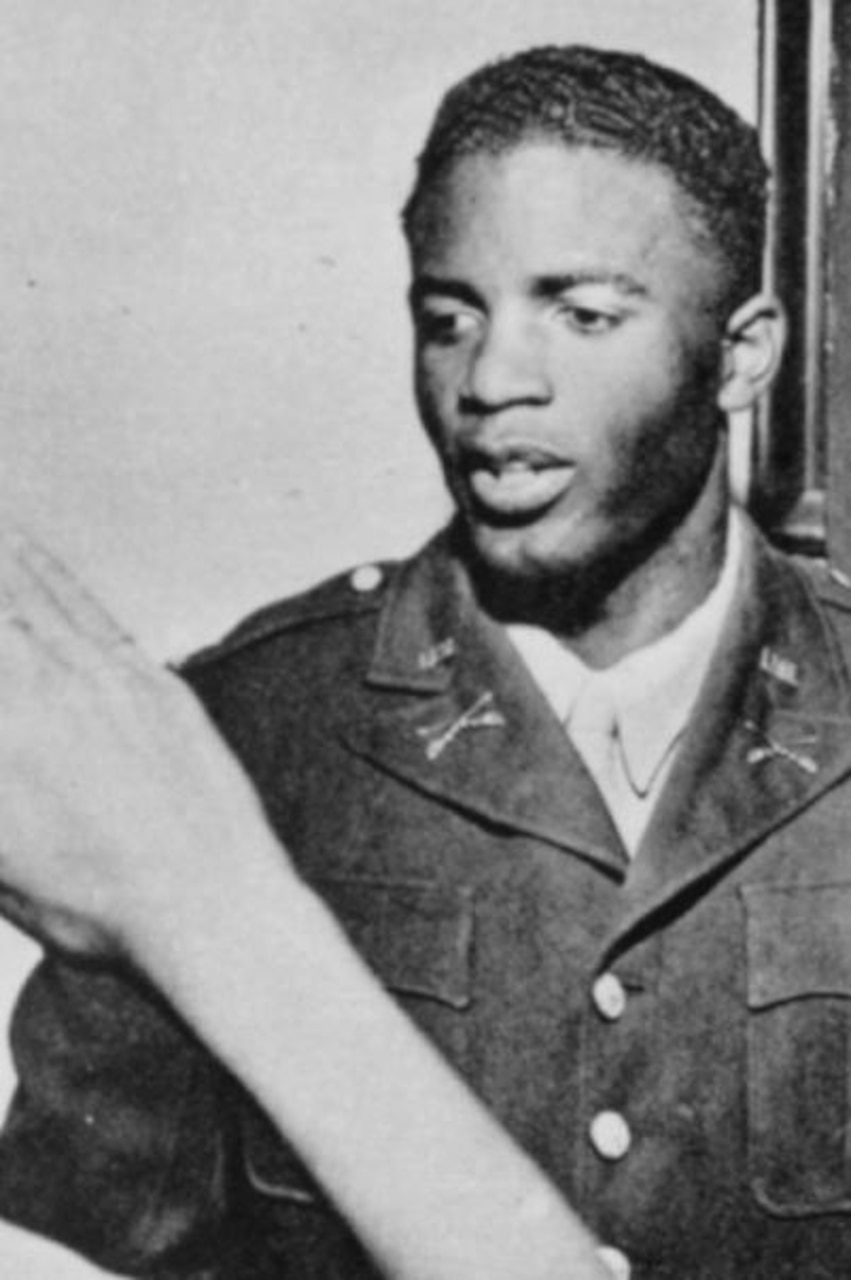King Military Law - [media]Tench's party thus appears to have combed the whole area from Cooks River to Prospect Creek and the Georges River. Contrary to Tench's account, Private Easty says they finally found a group of Aboriginal people on the beach at Botany Bay – but then returned to Sydney.[37]
[44] John Connor, The Australian Frontier Wars 1788-1838, UNSW Press, Sydney, p. 26; compare with Arthur Phillip, Journal, (in John Hunter, An Historical Journal of Events at Sydney and at Sea 1787-1792, Angus and Robertson, Sydney, 1968 (f.p. 1793), p. 299; James L. Kohen, A. Knight and Keith Vincent Smith, 'Uninvited Guests: An Aboriginal Perspective on Government House and Parramatta Park', report prepared for the National Trust of Australia (NSW), August 1999, p. 16.
King Military Law

In Aboriginal Law, justice must be done, and the world righted, through payback. If the perpetrator could not stand trial, then someone of his or her family or clan would have to stand for them. Guilt was transferrable to family and clan. Several historians, including William Stanner, Inga Clendinnen and Keith Vincent Smith, believe that before any further relations could occur, Phillip had to stand trial and be punished according to Aboriginal Law for his crimes and the crimes of his people.
Burramattagal elder who made the first formal recorded protest about when he advised Governor Phillip that the Aboriginal people were angry about the number of white settlers at Rose Hill. He and his family later moved to the river flats near Meadowbank.
[media]Since the 1980s the power of historical imagination – mostly inspired by anthropology and ethnographic history – has reshaped the ways historians think and write about the past. Historical imagination is not about inventing the past, it is about recreating, as fully as possible, the 'past's own present’. It is about re-imagining the human situations, the dilemmas and decisions, and what it's like not knowing what is going to happen.[5]
The Deputy Director works within a complex stakeholder environment to coordinate and deliver legal training courses and capacity-building activities for military officers from the Indo-Pacific region so that they are trained to conduct operations in accordance with the law. The Deputy Director sources trainers from the ADF Military Legal Service, Commonwealth agencies, academia and the humanitarian sector, ensuring appropriate representation and the maintenance of quality training standards at all times.
[media]But what did Bennelong make of all this? As a warrior enmeshed in the complex, post-smallpox, inter-tribal politics of the region, he seemed to be learning all he could about the Berewalgal, their allegiances, their fighting power, their great reserves of food, and he was doing all he could to please them and make them his allies. In April 1790 the fetter was struck from his leg, and Bennelong stripped off his clothes and escaped. Phillip and the officers were bereft. Yet another cross-cultural experiment seemed to have failed.[26]

Eora man who had an important role in relations between the colonists and the local people. With Colebee, Bennelong was abducted by Governor Phillip at Manly on 25 November 1789 and held at Government House. He escaped in May 1790, but started visiting the colony voluntarily later in the year. In December 1792, he travelled to England with Phillip, returning in 1795.
Part of Phillip's early plan for peaceful co-habitation had been to persuade some Eora – preferably a family – to come and live in the town with the British. Not only could the British then learn about the Eora, their language, beliefs and customs – the Eora might be convinced of the newcomers' friendly and peaceful intentions. They could also be introduced to the wonders and comforts of the British way of life and then act as envoys, spreading the message of goodwill and civilisation among their own people.[23]
Rocky outcrop to the east of Sydney Cove, which was a tidal island when Europeans arrived, but was joined to the mainland with rocky rubble in 1818 to provide a basis for Fort Macquarie to be built there. The point is named for Bennelong, who lived in a house on the point in the 1790s.
It is also possible that someone was wounded. Tench was not entirely truthful in his account – Collins reported that the soldiers on the expedition did in fact shoot at Aboriginal people, though he insisted that they failed to hit anyone.[40] Tench also omitted the fact that the second expedition did locate Aboriginal people lying by their fires on the shores of Botany Bay in the early morning darkness of December 24 – after which they began the return journey to Sydney. But there are no more details on what happened that night.
River that rises at Appin in the upland swamps of the O'Hares Creek catchment, and flows 80 kilometres north and east to meet Botany Bay at Taren Point, in Sydney's southern suburbs. The total catchment is over 930 square kilometres managed by a large number of local government authorities and is the main tributary of Botany Bay.
[4] See Emma Dortins, 'The many truths of Bennelong's tragedy', Aboriginal History, vol. 33, 2009, pp 53-75. Bennelong has been long depicted as a drunkard who ‘fell between two cultures’ and was rejected by both communities. Yet recent research reveals he married, had at least one son, was a leader among his people and much lamented when he died, see Keith Vincent Smith, Wallumedegal: An Aboriginal History of Ryde, Ryde City Council, Sydney, 2005, pp. 12-13, 25-7; James L. Kohen, The Darug and their Neighbours: the traditional Aboriginal owners of the Sydney region, Darug Link and Blacktown and District Historical Society, Sydney, 1993, p. 55; Grace Karskens, The Colony: A History of Early Sydney, Allen & Unwin, Sydney, 2009, pp. 422-3.
[10] See Tiffany Shellam, Shaking Hands on the Fringe: Negotiating the Aboriginal World at King George's Sound, University of Western Australia Press, Crawley, Western Australia, 2009; Stephen J. Kunitz cited in Tom Griffiths, 'Empire and Ecology: Towards an Australian history of the world', in Tom Griffiths and Libby Robin (eds), Empire and Ecology: Environmental History of Settler Societies, Melbourne University Press, Melbourne, 1997, p. 3. Paul Irish's research reveals that Aboriginal people occupied the coastal parts of Sydney continuously throughout the nineteenth and twentieth centuries, see Paul Irish, Hidden in Plain View: The Aboriginal People of Coastal Sydney, NewSouth Books, Sydney, 2017.
Drowned river valley that forms Sydney Harbour and includes North Harbour and Middle Harbour. Long inhabited by the Gadigal, Cammeraygal, Wangal and Eora people, Port Jackson was renamed by Captain Cook in 1770, although his ship did not enter the Heads.
The ADF Indo-Pacific Centre for Military Law (IPCML) is a small, integrated team of civilian personnel and permanent and reserve military legal officers which trains over 500 international military officers annually, both in Australia, and through Mobile Training Teams deployed to the Indo-Pacific region.
In addition, the Deputy Director assists the Director in ensuring the maintenance of high standards of governance and reporting in line with Australian Government practices, in particular those specified by Defence Legal. An evolving area of work for the Deputy Director is in the development of collaborative partnerships by fostering and maintaining a broad range of contacts in this field in order to encourage the mutual exchange of ideas and experiences and to benchmark best practice in military law training. The Deputy Director will be responsible for managing the design, delivery and evaluation of the suite of courses run in-house and by Mobile Training Teams, as well as managing staff, resources, workloads and priorities of the IPCML to deliver timely, cost-effective and quality legal training.
[media]The second scenario is this: by the time the first farms were being carved out of the bush, Phillip well-knew the fighting power and determination of the Eora warriors, particularly their animosity towards unarmed convicts trespassing in Country. He knew that they were not cowardly, weak people who could simply be moved on, as Cook and Banks had described them. Although plenty of Sydney people now had Eora friends, Phillip's earlier policy of kindness and gifts could not completely stop Eora violence, any more than he could stop settler transgressions. The new farms made the situation still more complex and dangerous. They were spread over a much greater area than the town of Sydney, they were isolated, and they would disrupt many different Aboriginal groups. How would it even be possible to use the policy of patient kindness with all of them?
[25] Watkin Tench, A Complete Account of the Settlement at Port Jackson, published as Sydney's First Four Years edited by L. F. Fitzhardinge, Library of Australian History, Sydney, 1979 (f.p. 1793), p. 145; David Collins, An Account of the English Colony in New South Wales, facs. ed. Libraries Board of South Australia, Adelaide, 1971 (f.p. T. Cadell and W Davies, London, 1798), vol. 1, pp. 57-8; Inga Clendinnen, Dancing with Stranger, Text Publishing, Melbourne, 2003, pp.189, 222.

How do we interpret Phillip in the light of his actions towards Aboriginal people? Was he a hero or a villain, a good guy or a bad guy? Do we keep him on his pedestal or knock him off? Or, do the twin lenses reveal something else: a pragmatic man in a real and difficult situation? At least two scenarios are possible: one is that Phillip considered the good relations he had established with the Eora of Sydney could and should stand in for his good relations with all Aboriginal people. He had conciliated them, as instructed, and he had done his job.
The Eora were also theoretically already British subjects because they were not considered to be the sovereign occupants or owners of the land. Thus they were – supposedly – subject to British justice – also considered a great gift.[24] But the Eora had their own legal system, and they were often repelled by what they saw of British justice. When forced to watch floggings, for example, they were horrified. In their own system of justice, the guilty were not bound and helpless but could defend themselves against the spears by parrying with shields.[25]
River that flows through south-west Sydney, starting at Graf Park, Yagoona, through to Botany Bay at Kyeemagh. The river was extensively polluted by industry and its course was changed to accommodate the runways of Sydney Airport.
The IPCML operates a high tempo legal training environment with a full program of training year-round, which will require on-site support and possible domestic and international travel. This is an opportunity for someone with a keen interest in international relations and international law to be involved with legal training and defence cooperation with partners from the Indo-Pacific region in order to shape Australia’s strategic environment.
[we] Started again att 3 oclock and went to Botany Bay and halted on the North Shore untill 2 on the Morning of the 24 when we went Down the Beach for abought 3 miles whaare we Saw Sevaral of the natives by thier fires and then and Marched Back to the Place from whence we Started and halted till 7 oclock when we returned to Sidney by 9 that morning after a most teadious march as Ever men went in the time.[36]
[media]The perspective of the broader Aboriginal world adds something useful here: after all, the arrival of the First Fleet and the setting up of the small camp in Sydney Cove is momentous only in retrospect: it marked the origins of a great city. But at the time it was just a tiny pinprick on the edge of a vast and ancient Aboriginal continent – it made barely a ripple at first. From this perspective, the idea that Phillip's first footfall on the beach in Botany Bay brought instant death and corruption across the entire continent is Eurocentric nonsense. Aboriginal people did not drop dead or lose their culture the moment they saw a white person.[10]

[media]In October 1790, about the same time as Bennelong's triumphant entry into Sydney, one of the Burramattegal elders, Maugoran, came down to protest to Phillip. This was the first recorded formal Aboriginal protest in Australia. Maugoran told Phillip that the people at Parramatta were very angry at the invasion of their country. Phillip noted it all down, but observed bluntly that 'wherever our colonists fix themselves, the natives are obliged to leave that country'. Instead of attempts at compromise or amelioration one might expect from a governor so committed to peaceful relations, Phillip immediately reinforced the detachment at Parramatta with more soldiers.[45]
The IPCML forms part of the Military Law Branch, and reports to the Director-General Military Legal Service. The team is co-located with the Military Legal Training Centre at Victoria Barracks Sydney in Paddington, NSW. The two centres share an administrative team (1 x APS6 Business Manager, 1 x APS5 Paralegal, 2 x APS4 Business Support Officers, 1 x APS1 Admin Officer), which performs critical administrative support and enabling functions to support training and capacity-building activities to military officers from the Indo-Pacific region.
Phillip did forbid anyone from shooting or otherwise harming Eora. But by anyone he meant convicts. He had them severely punished for doing so and for stealing from Eora. But this did not mean that officers and other military did not shoot at Aboriginal people – they did, usually with small shot, usually because warriors were throwing spears and stones at them. The first fatality may have occurred in September 1789 when Henry Hacking shot into a group while out hunting on the North Shore.[19]
The role of Deputy Director requires well-developed management skills, proficiency in training design and delivery (familiarity with the Systems Approach to Defence Learning is an advantage) and proficiency in the fields of International Relations, International Human Rights Law and International Humanitarian Law. This position contributes to Australia's security and stability in the region by promoting respect for the rule of law and compliance with international law, and the successful candidate will be expected to contribute to strategic initiatives and high-level matters in support of senior staff.
Our ideal candidate will have the ability to communicate in a clear, concise and articulate manner, both in writing and orally. Additionally, the successful candidate will need to work well autonomously, have a good sense of initiative, and be a self-starter, whilst also working closely with a team and in support of the Director IPCML.
[24] Their actual legal status remained ambiguous for decades, since they could not give evidence in British courts because they were considered incapable of taking the Christian oath and of understanding the proceedings. See Bruce Kercher, An Unruly Child: A History of Law in Australia, Allen & Unwin, Sydney, 1995, pp. 4-5.
[28] Inga Clendinnen, Dancing with Strangers, Text Publishing, Melbourne, 2003, pp. 133-9; Keith Vincent Smith, Bennelong: The Coming in of the Eora Sydney Cove 1788-1792, Kangaroo Press, Sydney, 2001, chapter 9; Grace Karskens, The Colony, Allen & Unwin, Sydney, 2009, pp. 386-9; re Bennelong's gunya see Watkin Tench, A Complete Account of the Settlement at Port Jackson, published as Sydney's First Four Years edited by L. F. Fitzhardinge, Library of Australian History, Sydney, 1979 (f.p. 1793), p. 200; David Collins, An Account of the English Colony in New South Wales, facs. ed. Libraries Board of South Australia, Adelaide, 1971 (f.p. T. Cadell and W Davies, London, 1798), vol. 1, p.137.
[media]I agree with Inga Clendinnen and others that Phillip and the officers were genuinely committed to establishing and maintaining friendly and peaceful relations.[9] Phillip initially thought there would be no problem avoiding disputes with Aboriginal people. In fact, he and the officers hungered for friendship. The early meetings in Botany Bay and Port Jackson were often marked by friendliness, curiosity, gift giving and dancing together on the beaches. This is so entirely different from earlier violent and murderous encounters between Europeans and Indigenous people. It is also very different from the frontier violence that dominated pastoral expansion in Australia well into the twentieth century. In that sense it was enlightened and humane.
[media]Again, this plan was underpinned by some profound cultural assumptions. While they were very interested in the Eora, Phillip and the officers seem to have had little inkling that they already had their own complex social and cultural systems and were in no need of British ones. The idea that the Eora would or could abruptly drop their entire culture and way of life for a British one seems bizarre to us. But that is what the British assumed would happen. When it didn't, they were confused. How could anyone not want to be British?
This was one of the happiest days for many of the early officer chroniclers – they were genuinely delighted and relieved, because they believed that the violence was now at an end, and the two groups were now friends, who would live in amity.[29] It is deeply poignant to read those words now, knowing what happened in the decades that followed.
king military law google review, don king attorney, don king military law, king law firm san diego, king lawyer san diego, san diego military lawyer








:max_bytes(150000):strip_icc():focal(469x194:471x196)/Jackie-Robinson-00003-a5beb3c7326e43c799b3a734bbb34952.jpg)


